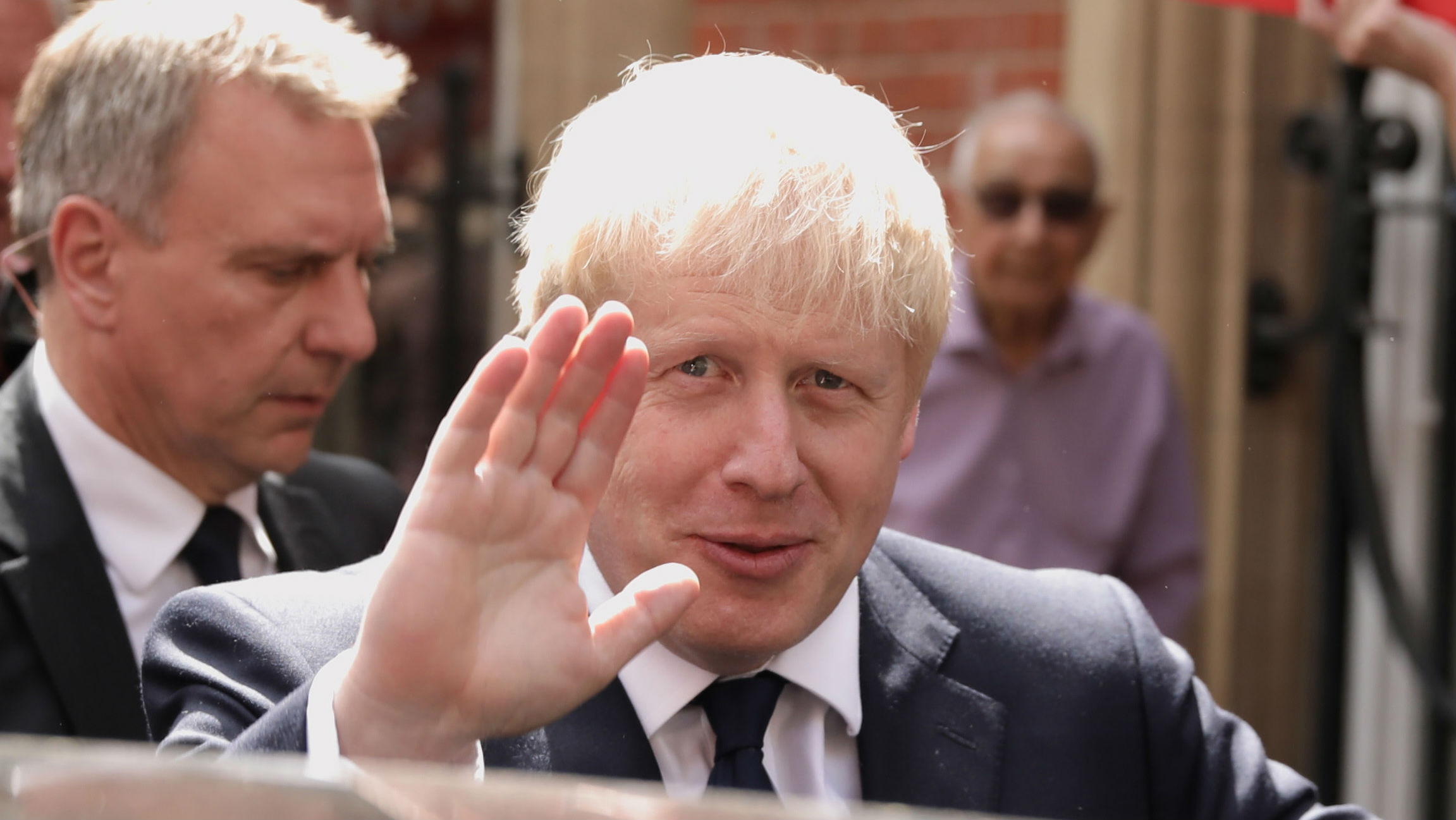Boris Johnson elected prime minister: what next?
Former foreign secretary storms to victory in Tory leadership contest - but delivering Brexit may prove an even greater challenge

A free daily email with the biggest news stories of the day – and the best features from TheWeek.com
You are now subscribed
Your newsletter sign-up was successful
Boris Johnson has been selected as the next prime minister of the UK, following a six-week Tory leadership contest that has seen questions raised about his character and integrity.
The former foreign secretary was announced as the winner of the battle to succeed Theresa May at around midday on Tuesday, at the Queen Elizabeth II Conference Centre in Westminster.
Although the early rounds of the debate-packed contest were tense, Johnson quickly emerged as the clear favourite, and racked up around 92,000 votes in the final ballot of Conservative Party members, to his rival Jeremy Hunt’s 47,000.
The Week
Escape your echo chamber. Get the facts behind the news, plus analysis from multiple perspectives.

Sign up for The Week's Free Newsletters
From our morning news briefing to a weekly Good News Newsletter, get the best of The Week delivered directly to your inbox.
From our morning news briefing to a weekly Good News Newsletter, get the best of The Week delivered directly to your inbox.
There will be “no honeymoon period for this PM” as these are “not normal times”, but Johnson’s storming victory will “certainly give him a mandate to step up no-deal Brexit preparations”, says Sky News.
And Johnson appears well aware of that. On the eve of the result, he insisted in an article for The Daily Telegraph that Britain can leave the European Union with a deal at the end of October if the country has the “will” and the “drive” for Brexit, and reiterated his claim that the Irish border problem can be solved through technological innovation.
In a reference to the Apollo 11 Moon landing 50 years ago, he writes: “If they could use hand-knitted computer code to make a frictionless re-entry to Earth’s atmosphere in 1969, we can solve the problem of frictionless trade at the Northern Irish border.
“It is time this country recovered some of its can-do spirit. We can come out of the EU on 31 October, and yes, we certainly have the technology to do so. What we need now is the will and the drive.”
A free daily email with the biggest news stories of the day – and the best features from TheWeek.com
Assuming the UK is able to quit the bloc by that deadline, here’s how his premiership looks likely to pan out between now and then.
23 July
Boris Johnson delivers his victory speech after being named as the new Tory leader. He will then finalise his choices for cabinet and wider ministerial roles, and write his first prime ministerial speech, according to The Daily Telegraph.
Johnson is also expected to visit Conservative Campaign Headquarters to “rally the troops and spends time thanking his leadership campaign team in person”, the newspaper adds.
24 July
On Wednesday, Theresa May will take part in her final Prime Minister’s Questions in Parliament.
Shortly after this, Chancellor Philip Hammond and other Remain-supporting ministers including Rory Stewart, David Gauke and Greg Clark are expected to hand in their resignations to the outgoing PM, having all stated that they will not serve in a Johnson government.
Johnson will reportedly begin seeing ministers whom he intends to sack at around 2pm in his Commons office.
Meanwhile, May will head to Buckingham Palace at around 3pm to offer her resignation to the Queen.
Her Majesty will subsequently meet Johnson and invite him to form a new government, before he makes a speech at 10 Downing Street. He will then begin appointing his first Cabinet.
25 July
At 9am, the first Johnson Cabinet will meet in Westminster.
However, the Financial Times notes that MPs “worried about the course of government policy under the new prime minister will have precious little time to act” before the House of Commons breaks up for the summer recess.
“If the Labour Party plans to put forward a motion of no confidence in the new premier before the summer break, it must do so on this day, 25 July, after which Parliament will be adjourned,” the paper says.
29 September
The resumption of Parliament on 3 September will be followed by the Conservative Party conference, to be held in Manchester between 29 September and 2 October.
The FT notes that in her first Tory Party conference, May “set the course for her premiership” when she “in effect pledged to pursue a hard-Brexit policy”.
“By promising to end the free movement of EU citizens and escape the sway of the European Court of Justice, she left no other viable avenue open than an exit from the EU’s single market,” the paper adds. Given those repercussions, Johnson’s choice of words will be watched closely.
Early-mid October
Parliament resumes following the various party conferences. The exact dates for this session have not been announced, Reuters reports.
Under existing British law, any new Brexit deal would need approval by Parliament before it can be ratified, so this period may see Johnson attempting to force through a withdrawal agreement.
31 October
Britain is due to leave the EU by this date, but there is no guarantee that the UK will succeed in signing an effective deal before splitting off - as Johnson has acknowledged.
Sky News suggests that his willingness to crash out without a deal if an agreement cannot be reached “could perhaps collapse his government, split the Tory party and force him out of power anyway”.